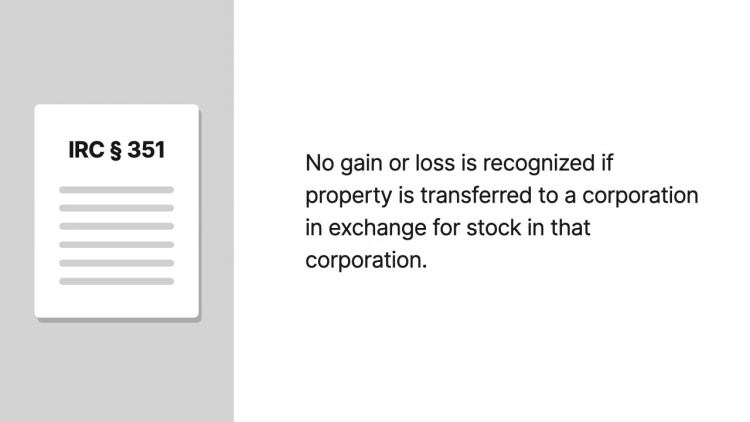James v. Commissioner
United States Tax Court
53 T.C. 63 (1969)
- Written by Heather Whittemore, JD
Facts
William James (plaintiff) was a builder and real estate developer in South Carolina. In 1963 James and the Talbots entered into an agreement to construct a rental apartment building. The agreement explained that the parties would form a corporation to take title to the project and that James and the Talbots would each own 50 percent of the corporation’s stock. The Talbots agreed to give the corporation the land on which the building was to be constructed. James agreed to plan, design, construct, and obtain financing for the building. James obtained mortgage commitments from the Federal Housing Administration (FHA) and United Mortgagee Service Corp. (United Mortgagee) for $850,700 to finance the construction of the building. The FHA required that the mortgage be made out to a corporation, and all relevant parties knew that a corporation would eventually be formed. On November 5, 1963, James and the Talbots formed Chicora Apartments, Inc. (Chicora), a corporation with a capital stock of 20 common shares. The Talbots transferred the land to Chicora in exchange for 10 common shares of stock. The other 10 common voting shares were transferred to James in consideration of the mortgage commitments he had obtained from the FHA and United Mortgagee. James did not report the common stock on his income-tax return, reasoning that the exchange of mortgage commitments for stock qualified for nonrecognition under § 351 of the Internal Revenue Code. The Commissioner of Internal Revenue (the Commissioner) (defendant) assessed a deficiency against James for $22,000, the value of his Chicora stock. The Commissioner argued that James received the stock as income in exchange for services he rendered to the corporation. James appealed.
Rule of Law
Issue
Holding and Reasoning (Simpson, J.)
What to do next…
Here's why 907,000 law students have relied on our case briefs:
- Written by law professors and practitioners, not other law students. 47,100 briefs, keyed to 996 casebooks. Top-notch customer support.
- The right amount of information, includes the facts, issues, rule of law, holding and reasoning, and any concurrences and dissents.
- Access in your classes, works on your mobile and tablet. Massive library of related video lessons and high quality multiple-choice questions.
- Easy to use, uniform format for every case brief. Written in plain English, not in legalese. Our briefs summarize and simplify; they don’t just repeat the court’s language.





